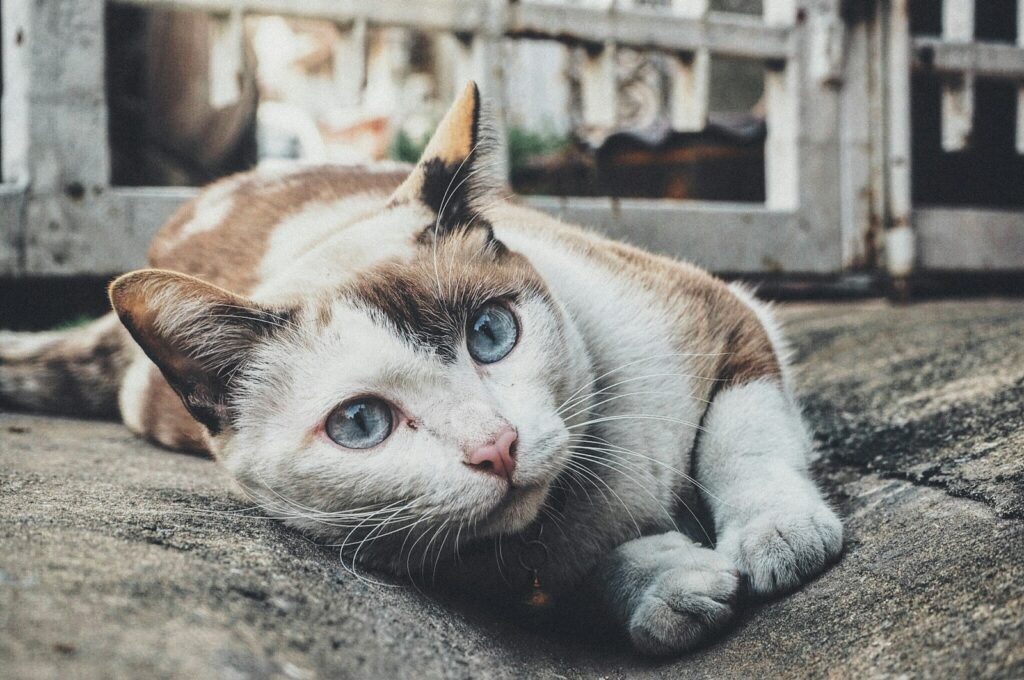As any cat owner will tell you, our feline friends can be quite the enigma. While they often project an air of independence and aloofness, cats are also sensitive creatures that may experience anxiety for a variety of reasons. Understanding what might trigger these feelings can empower you to provide a more comforting and stable environment for your pet. Here are six surprising reasons why your cat might be anxious, shedding light on the labyrinth of your cat’s emotional world.
Changes in Environment

Cats are creatures of habit, deeply attached to the predictability of their surroundings. A sudden change in environment, whether it’s a move to a new home or simply rearranging the furniture, can be disorienting and stress-inducing. Cats rely heavily on familiar scents and sights to feel secure, and when these elements are disrupted, it can lead to a sense of unease. Gradually introducing changes and providing familiar items during transitions can help ease this anxiety.
Social Stress

Believe it or not, cats can experience social stress similar to humans. The introduction of a new pet, a new baby, or even frequent visitors can alter the social dynamics in your home, leaving your cat feeling overwhelmed. Cats may become anxious from territorial disputes or the fear of losing your attention. Ensuring that your cat has a dedicated space and attention can alleviate these worries.
Lack of Mental and Physical Stimulation

Just like humans, cats need stimulation to stay mentally and physically fit. Without sufficient playtime, interaction, and opportunities to explore, cats might become bored, leading to signs of anxiety. Providing interactive toys, engaging in daily play sessions, and ensuring your cat has safe spaces to explore can help reduce pent-up energy and improve mental well-being.
Health Issues

Sometimes, anxiety can be a sign of underlying health problems. Painful conditions such as arthritis, dental issues, or urinary tract infections may cause discomfort and lead to stress behaviors in cats. Regular veterinary check-ups can help identify and manage health issues early, reducing related anxiety. Always be attentive to any changes in your cat’s behavior that might suggest they’re not feeling their best.
Separation Anxiety

While cats generally seem more independent than dogs, they can still suffer from separation anxiety. This often goes unnoticed as many people believe cats are solitary by nature. However, many cats form strong bonds with their owners and may feel anxious when left alone for extended periods. Gradually acclimating your cat to short separations and providing environmental enrichment can help them feel more secure in your absence.
Past Trauma or Negative Experiences

Cats that have experienced trauma or negative situations in the past may carry anxiety from those events, even after being removed from the situation. This is often seen in rescue cats or those with a history of neglect or abuse. Building a bond of trust through patience, gentle handling, and positive reinforcement can help a previously traumatized cat feel safe and secure again.
Conclusion

Understanding the reasons behind your cat’s anxiety can be the key to providing a more harmonious life for both you and your feline friend. By recognizing potential causes—from environmental changes to health issues—you can take proactive steps to reduce their stress and enhance their quality of life. Remember, a happy, anxiety-free cat is not only a joyful presence at home, but also a cherished member of the family who thrives on the love and attention you provide.

Suhail Ahmed is a passionate digital professional and nature enthusiast with over 8 years of experience in content strategy, SEO, web development, and digital operations. Alongside his freelance journey, Suhail actively contributes to nature and wildlife platforms like Feline Fam, where he channels his curiosity for the Feline into engaging, educational storytelling.
With a strong background in managing digital ecosystems — from ecommerce stores and WordPress websites to social media and automation — Suhail merges technical precision with creative insight. His content reflects a rare balance: SEO-friendly yet deeply human, data-informed yet emotionally resonant.
Driven by a love for discovery and storytelling, Suhail believes in using digital platforms to amplify causes that matter — especially those protecting Earth’s biodiversity and inspiring sustainable living. Whether he’s managing online projects or crafting wildlife content, his goal remains the same: to inform, inspire, and leave a positive digital footprint.






